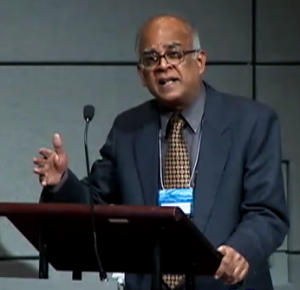
Abstract
The contours of the geography of science and scholarship have been changing and the change is likely to be even more pronounced in the years to come. The dominance of the advanced countries of the West is eroding and the erstwhile colonies are no longer content to remain hunting grounds for safari science. Some of them are unwilling to play second fiddle to science in the advanced countries any longer and want to be equal partners.
The need for science to be performed everywhere and take roots in all countries is now well recognized.
The toll-access journal system that was set up some 350 years ago and which has served well till a few decades ago evolved, for historical reasons, largely to serve the needs of North-North knowledge exchange and have failed to take cognizance of the aspirations of the South. In addition, the spiraling costs of journal subscriptions have effectively locked researchers from the South out of access to new knowledge and the much-needed international dialogue, thus making the notion of universality of knowledge and science a distant ideal and not a practicable goal.
Even advocates of open access do not fully recognize how important it is today for scientists in the North to learn about developments in the South. The value of South-to-North flow of knowledge was well demonstrated by what happened during medical disasters such as avian flu and swine flu when speedy exchange of not only research results but also research data enabled dealing with the disasters quickly.
Open access to knowledge is not merely important in science but also in development. Organizations such as IDRC and to some extent DFID support open access to all the reports from development projects they support.
If OA is so very important to the South, why is the progress slow? While computers, internet access and bandwidths continue to pose problem in a number of southern countries, in general the situation is improving. The more importan factor is scientists’ apathy. Scientists in the South, by and large, do not exercise their rights to the full; often they give away on a platter copyright to their research papers to journal publishers. The publishers themselves indulge in practices that would entice publishing scientists and librarians to act in ways that would benefit the publishers. Funding agencies and goverments of southern countries are not as proactive as they should be.
Focused advocacy on the advantages of the public commons approach can bring about some revolutionary changes. Such advocacy should be aimed at all levels of stakeholders. Some examples of what is being done in India will be presented.
Click the link below to load the video archive of the plenary session.
Scholarly communication in the age of the commons – A southern perspective